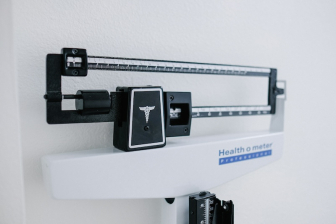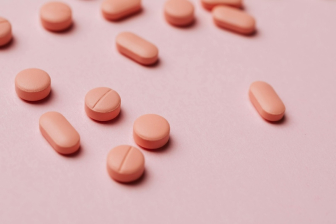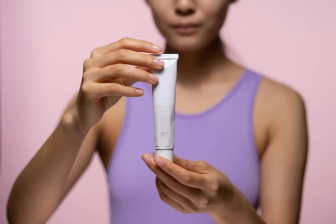PrEP for HIV Prevention
Last updated: 10 March 2021
You can legally access new medicines, even if they are not approved in your country.
Learn howWith recent drops in new HIV diagnoses being linked to buying PrEP through online buyers clubs, the addition of PrEP to the WHO's essential medicine list, and the recent approval of generic PrEP in the US - here’s what you need to know.

The management of HIV has increased considerably through the use of antiviral medicine known as PrEP. PrEP (pre-exposure HIV prophylaxis) is a preventative measure which minimises the risk of HIV infection by taking PrEP on an ongoing basis.
HIV - what are the statistics?
HIV, human immunodeficiency virus, is the virus that if left untreated can lead to the disease AIDS (acquired immunodeficiency syndrome). Worldwide HIV statistics indicate that at the end of 2015 approximately 36.7 million people worldwide were living with HIV, of these 2.1 million infections happened in 2015 and 1.8 million were children below 15 years of age.[1] Globally, only 60% of people with HIV know their status, however the number of people living with HIV and receiving treatment (antiretroviral therapy (ART)) is increasing. As of June 2016, up to 18.2 million globally were accessing ART compared to less than one million in 2000.[2]
Can HIV be prevented?
A medication for the treatment of HIV is an antiviral medicine containing emtricitabine and tenofovir disoproxil fumerate (known as its brand name Truvada) to treat adults infected with human immunodeficiency virus type 1 (HIV-1). It does not cure HIV infection or AIDS, but it can keep the virus under control, and the development of infections and diseases associated with AIDS.[3]
This medication is also used as a preventative measure known as PrEP (pre-exposure HIV prophylaxis) which minimises the risk of HIV-1 by taking one pill on an ongoing basis. PrEP does not protect against other STIs and as such, educators recommend the use of PrEP in combination with other practices, including condoms. For HIV-1 infection prevention (PrEP), it is expected that PrEP in the blood will stop the virus from multiplying and spreading from the site of infection in case the individual is exposed to the virus.[3]
With the development of effective treatments and pretreatments, many are now realising healthy lives and the chances of the disease being transmitted can be lowered.
PrEP approval and studies
Approximately 10 years after the approval of Truvada for HIV-1 treatment, the approval was extended for PrEP in 2012 by the US Food & Drug Administration (FDA), in 2016 by the European Medicines Agency (EMA)[5] and the Australian Therapeutic Goods Administration (TGA).[6]
The approvals of Truvada (emtricitabine / tenofovir disoproxil) as pre-exposure prophylaxis (PrEP) were based on two main studies known as iPrEx and Partner PrEP which evaluated the addition of the medication to standard preventative measures for pre-exposure prophylaxis.
A recent study named PROUD carried out by Prof. Sheena McCormack of the Chelsea and Westminster Hospital NHS Foundation Trust, UK has shown that PrEP reduces HIV infections by 86%. Similar results were reported from the IPERGAY study in France. These studies are likely to revolutionise HIV prevention particularly amongst men who have sex with men (MSM) populations.
PrEP may already be a game changer as in 2016, four London sexual health clinics saw a decrease of approximately 40% in new HIV diagnoses among gay men compared to 2015 figures.[7] This dramatic fall in new HIV diagnosis may be due to the purchasing of PrEP online.
Although PrEP has been approved in Europe, it is currently not available on the National Health Service in England. However, NHS Scotland became the first place in the UK to offer PrEP to eligible patients earlier this year, estimating that up to 1,900 people could benefit from the drug.[8] Similarly, Welsh NHS have just announced that they will be providing PrEP as part of a three year trial.[9]
What are the PrEP medication costs?

"While the drop in new HIV cases in certain places could be due to a number of factors such as wider testing and treatment, the fact that HIV can be prevented through the use of PrEP along with safer sex practices, must encourage governments and health care systems to take meaningful actions."
Yet for those in England frustrated by the high price of the brand label Truvada, manufactured by Gilead Sciences, and indeed those waiting on availability dates in the rest of the UK, have turned to “online buyers clubs” to source generic PrEP from places like India and Thailand to protect against the virus. This is similar to other countries around the globe such as Ireland and The Netherlands, as although the EMA decision is based on medical recommendations, the availability of this medicine in the EU is the responsibility of the national competent authorities. The provision and payment of PrEP from European healthcare systems now poses the biggest barriers to access.
For those that are accessing generic drugs online to avoid paying a huge price tag of £400/€600 for private prescriptions of Truvada a month, or for those where PrEP is not available through their health service, appear to be making a major impact in new HIV diagnoses.
Controversy and the price of drugs varying from country to country are never far away from the pharmaceutical sector, as we’ve seen in previous posts regarding the medication deflazacort for the treatment of Duchenne muscular dystrophy.
Accessing generic PrEP in the US
Yet in light of this hefty price tag, good news was announced last week by the US Food and Drug Administration (FDA) who approved the first generic form of Truvada for both the treatment and prevention of HIV to Teva Pharmaceutical Industry. The announcement has been considered a breakthrough from Gilead’s pricing of approx. $1,500 a month in the US. While the cost of the generic is still unknown, and availability will not be immediate, this approval is a massive step forward to lowering the price barrier of PrEP.
The future of PrEP
While the drop in new HIV cases in certain places could be due to a number of factors such as wider testing and treatment, the fact that HIV can be prevented through the use of PrEP along with safer sex practices, must encourage governments and health care systems to take meaningful actions. The recent addition of PrEP to the World Health Organisation's list of essential medicines deems the drug essential for public health needs. This list is often used by countries to guide decisions and prioritise the provision of drugs, which will hopefully encourage and accelerate the availability of PrEP.
With certain areas seeing an increase in PrEP uptake, it is also essential that national services provide PrEP support and services.
To find out more information on PrEP you can visit Prepster.info.

References
1. http://www.unaids.org/en/resources/fact-sheet
2. https://www.hiv.gov/hiv-basics/overview/data-and-trends/global-statistics
8. http://www.bbc.com/news/uk-scotland-39552641
9. http://www.bbc.com/news/uk-wales-39744815




